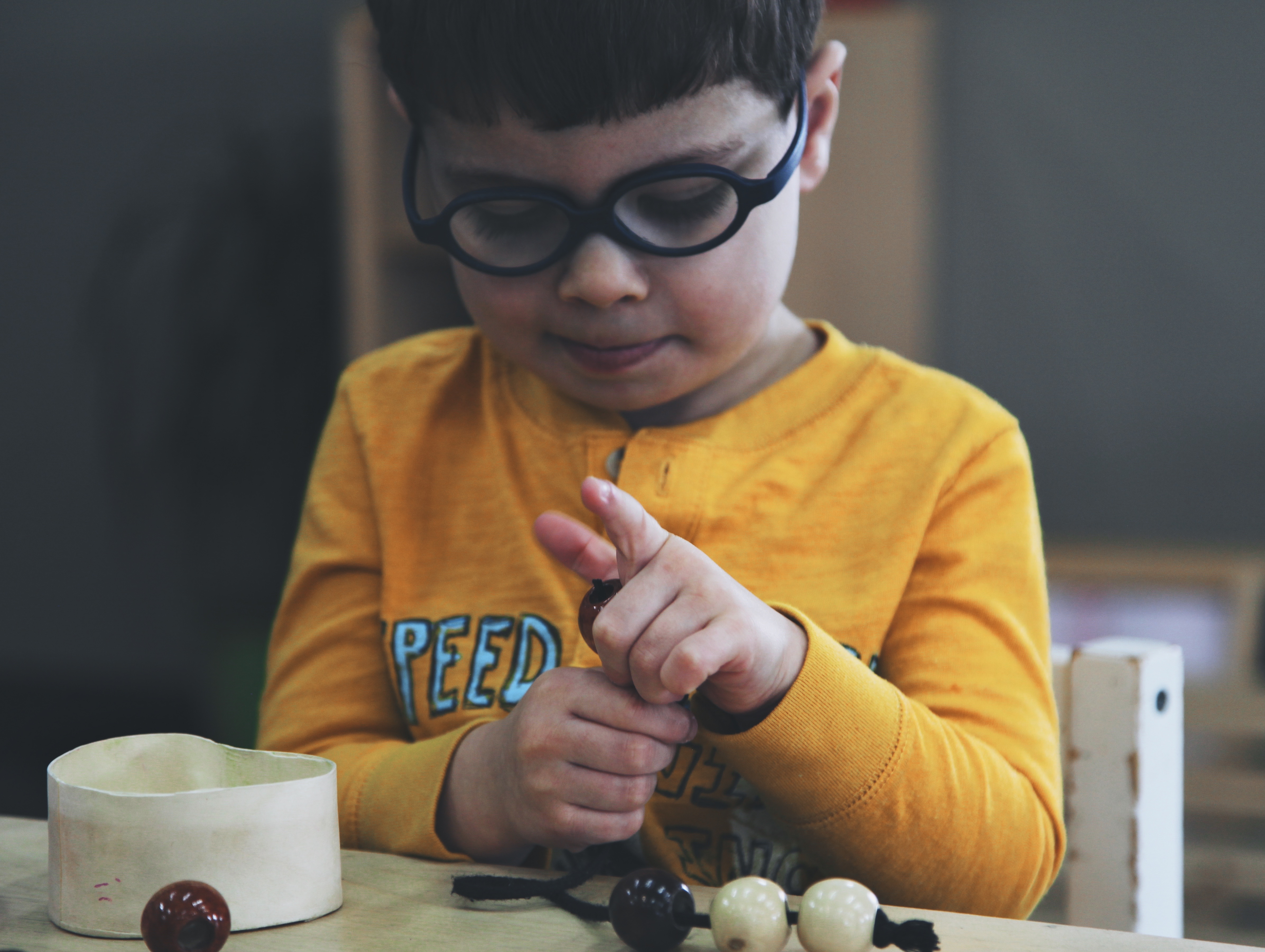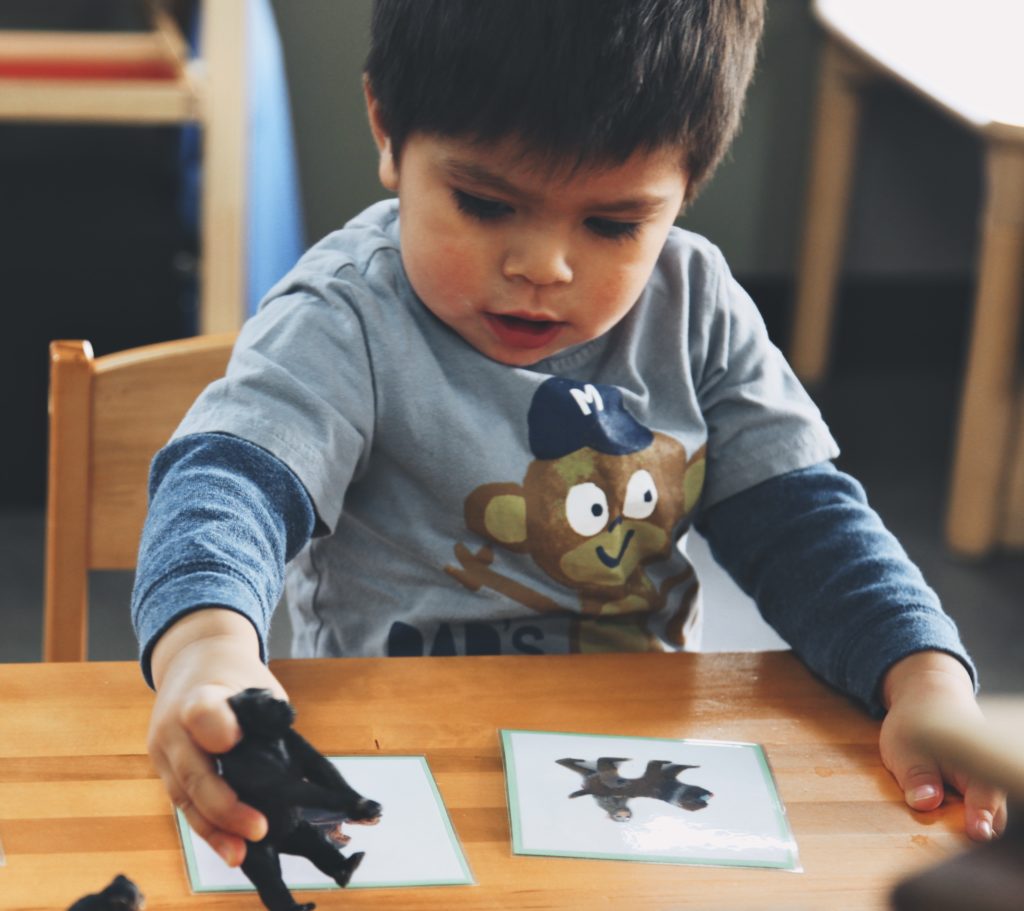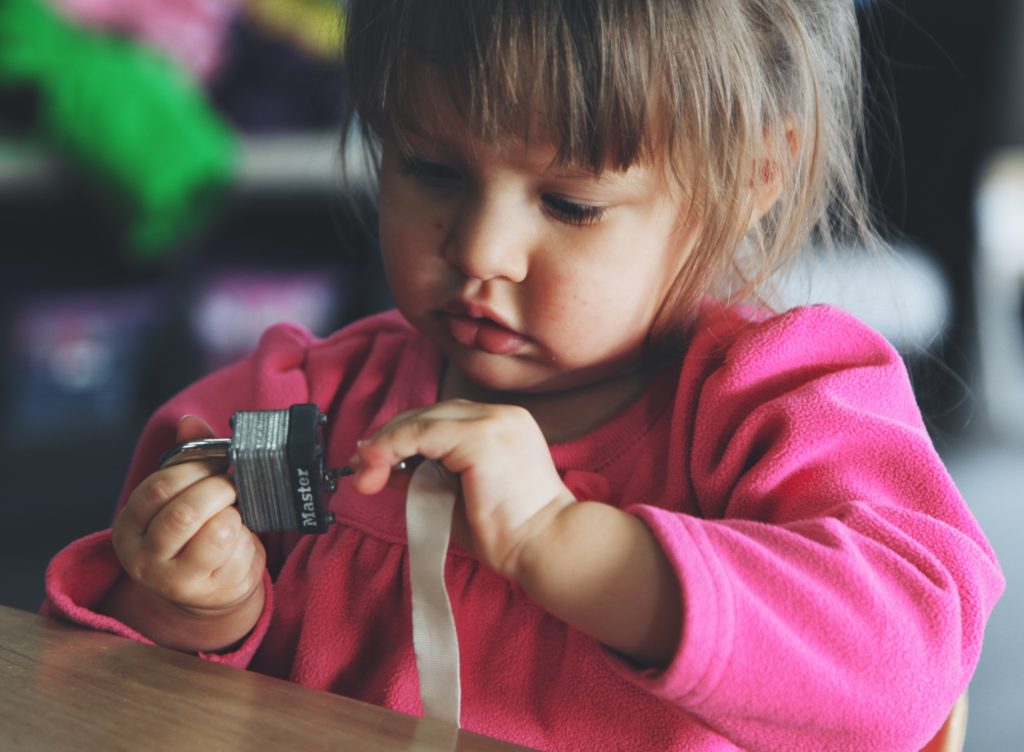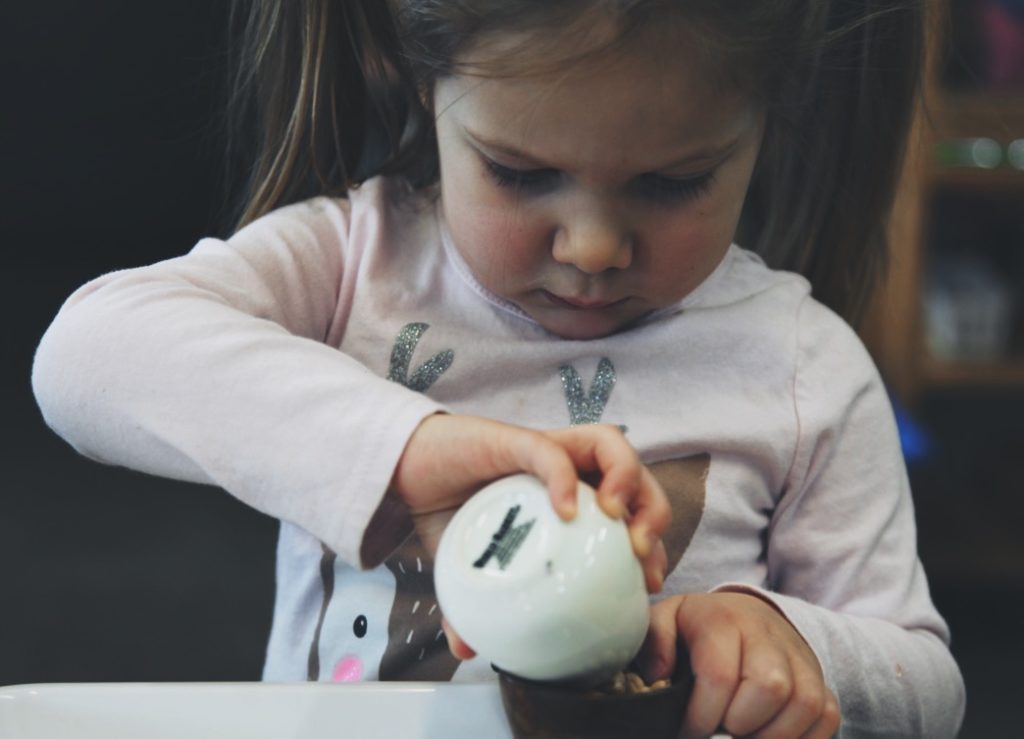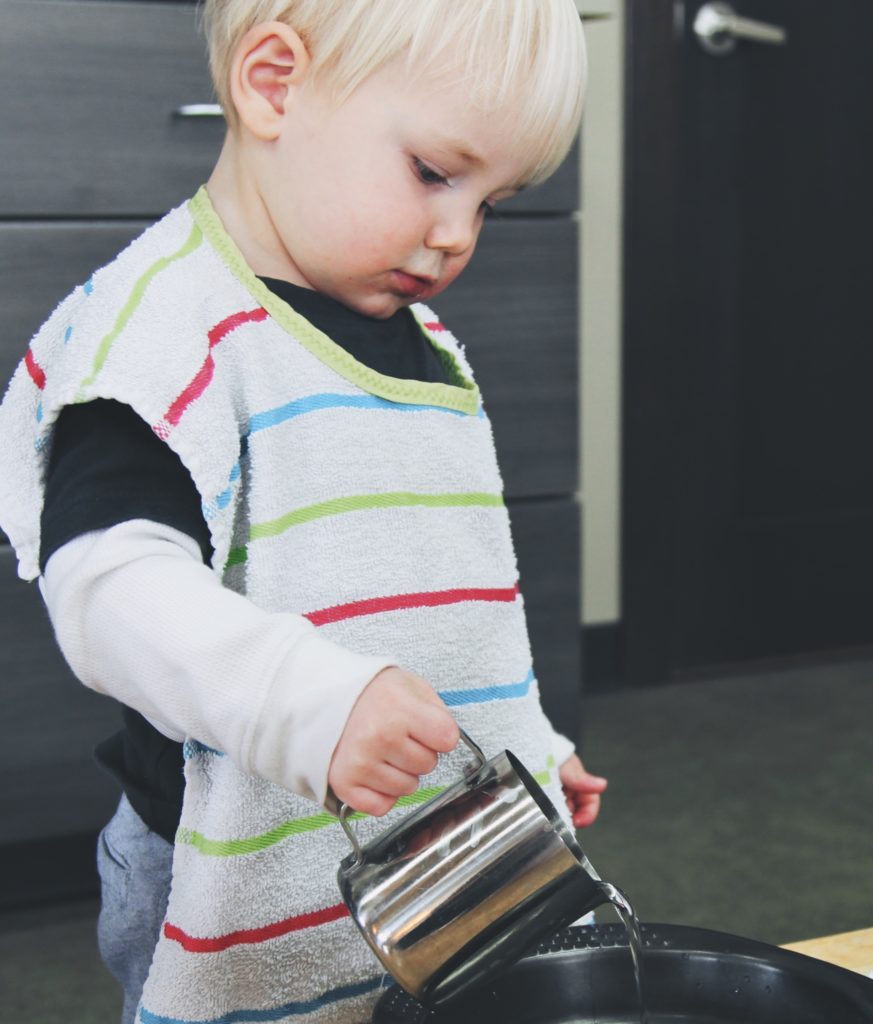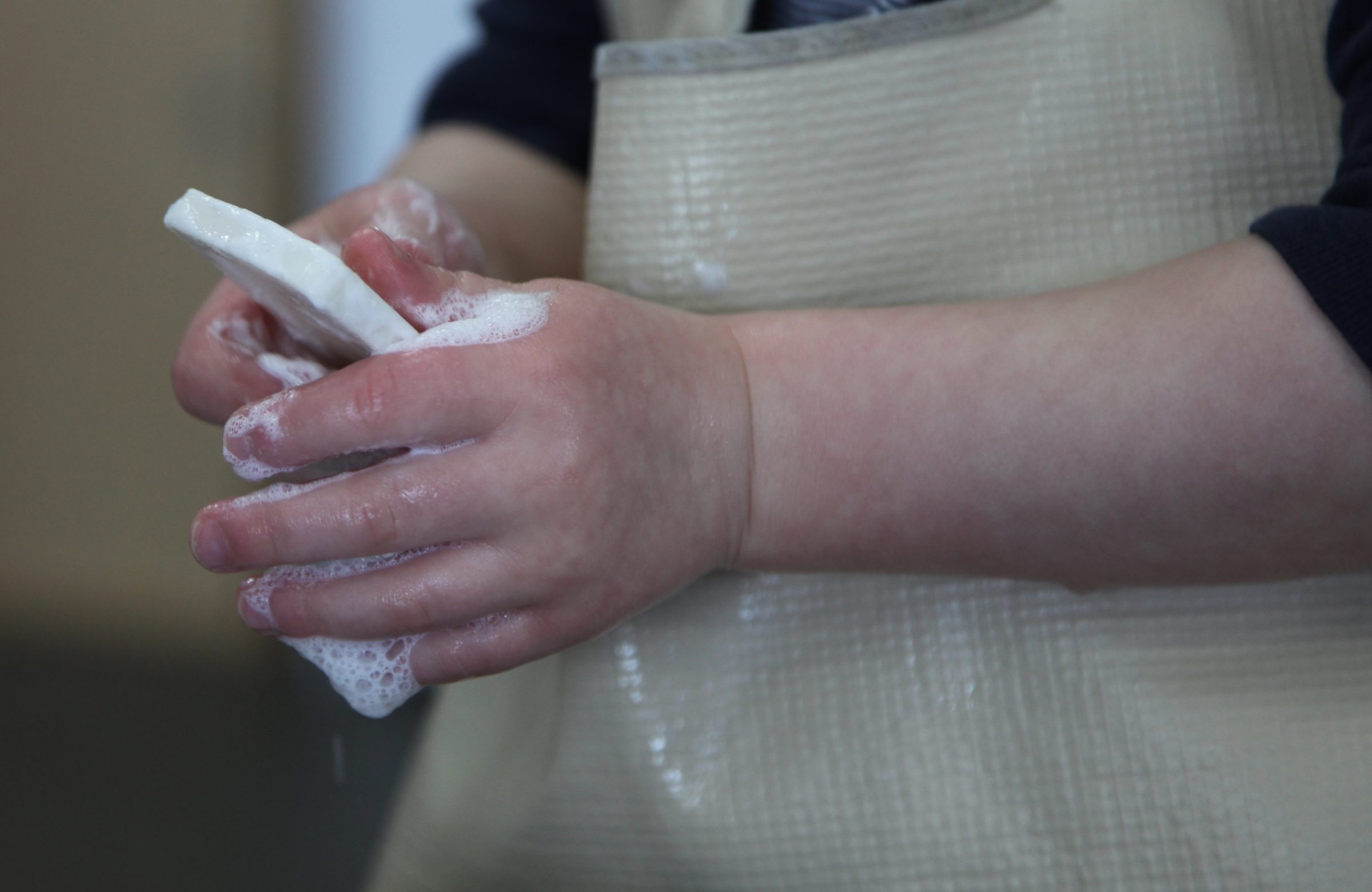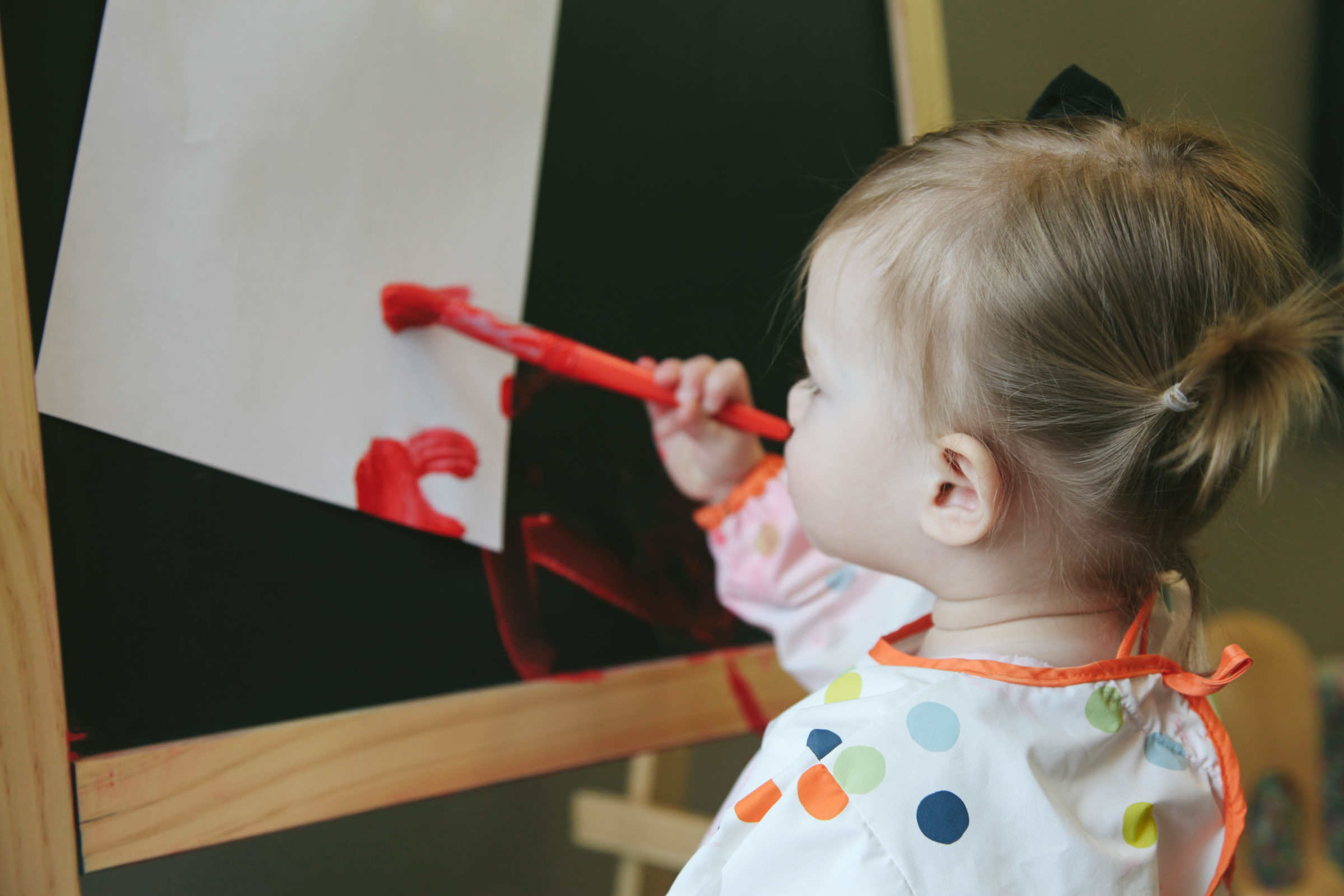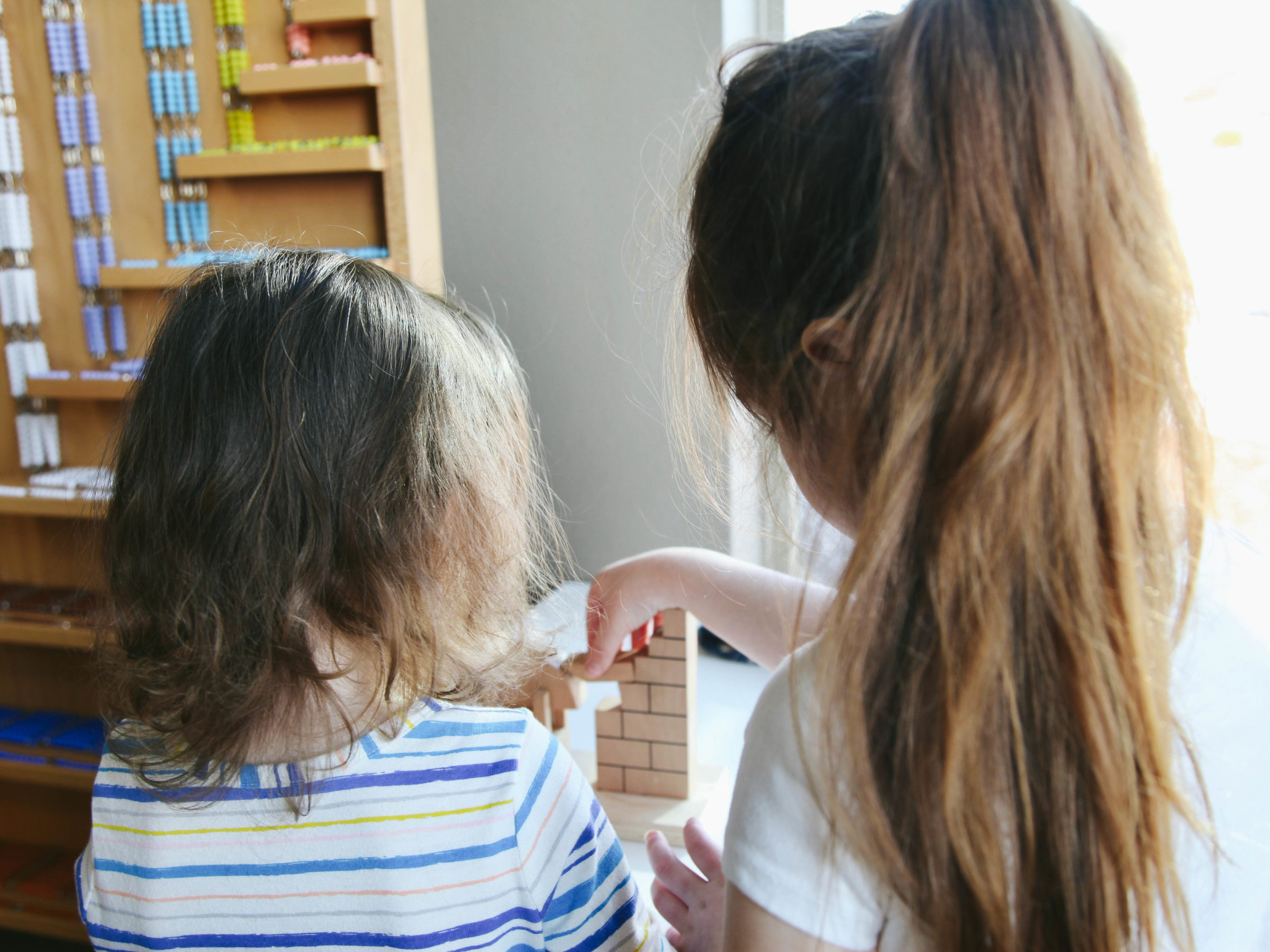Hard Work
Thoughts & Reflections
Growing up is hard work. Everything is brand new for this infant, this baby, this young toddler. Things we take for granted have to be learned, which is so easily forgotten.
When we think about it, everything a child does is challenging. Their whole life is hard! And yet, we often see very little frustration. The times when we do see a bit of frustration, are often on the cusp of a new accomplishment — just on the verge of an explosion in language, the day before you start walking, right after you’ve just put spoon to mouth and then you try again and you can’t. As soon as the new accomplishment is made, the skill or knowledge solidifies and persists, and the frustration dissipates.
She works so hard at rolling over, but never gives up. She wants that toy, just out of reach, and wiggles, stretches, rolls until finally she figures out how to scoot. Once stable on hands and knees, she rocks, falls over, and picks herself up again, determined to crawl.
She does this without anyone ever telling her to, coaching her how, providing instruction. Her development is calling her to move, to grasp, to speak, and she follows that development without fail.
Anyone who’s needed physical therapy will tell you, walking is hard. There is so much coordination involved, synapses telling the body what to do, so many muscles, tendons, and bones, working the whole body, in order to move in a specific direction.
But it never occurs to the very young child, this is too hard for me. This is insurmountable. I should just give up. It would really be better for someone to carry me around.
The same is true of any skill he’s acquiring at this early age. Perhaps he’s so comfortable with the discomfort of inexperience, that the whole world is so new, that a majority of things are unknown, unmastered, that this newness becomes a gift a tool that makes any new learning accessible.
We know, in theory, children will attach to any language they are exposed to. If that is a variety of languages, or an abundance of vocabulary in a single language, if it’s part of their experience, they’ll understand and use it in context. There is no filter, of “this should be difficult,” or “this is simple language.” “Cat” is just as easy as “Maine Coon,” or “Snow Leopard,” and there’s no limit to what he can understand and use. The language becomes part of his world experience.
In the classroom with our youngest students, there are amazing moments every day. Moments when you realize the true volume of the learning that is happening. Sometimes, though, one of them takes your breath away.
There was a two-year-old in the Toddler Classroom working with the classroom teacher on a language exercise. Eavesdropping is how we learn so much.
“Which one should I find next?”
“Cube.”
“There it is! Which one should I find next?”
“Triangular prism.”
“I found it! What’s the only one left?”
“Cylinder.”
“Yes! There it is! Your turn. Which one are you going to find?”
They were taking turns, searching inside a closed bag the way I might look for a pen in the bottom of my purse, identifying solid figures only by touch. Absolutely dumbfounded; he doesn’t realize how hard this is.
This is absolutely phenomenal learning. Let’s examine it.
How often might he have heard the phrase “triangular prism” if it hadn’t intentionally been presented to him? Yet, he’s able to identify, remember, use appropriately. There might not be a reason to use it in conversation, but if there is, the vocabulary will be right there, ready to use.
“But it never occurs to the very young child, this is too hard for me.”
He’s recalling three figures hidden out of sight. At two, he’s remembering these three items, what they’re called, picking one for the teacher to find, and telling her if she got the right one or not. Then, through process of elimination, he’s identifying which ones are left, and going through the whole process again.
When it’s his turn, he’s using his hand to identify rather than his eyes. The visual sense is incredibly powerful, and we rely on it all the time, sometimes to the detriment of the other senses. What we might recognize almost immediately on sight, sometimes takes a minute to recognize by listening (a violin or a viola, perhaps) or there might be cues we’ve relied on without even realizing it (the cube is blue, while the cylinder is red). But when we’re left with just our hand, identification is trickier. Not impossible, but more challenging.
For this young child, though, there is no challenge. His senses are still awakened. He’s used to identifying not just by sight, but by taste, smell, touch, hearing. He experiments with everything, instead of taking various properties for granted. He doesn’t assume he knows anything.
So while we sit back, absolutely amazed that not only does he know this precise language, but he can identify these blocks by touch alone, and that this is not rigorous but a playful moment with a teacher, this is just every day for him.
At some point, he will fail. He will have enough knowledge and awareness to realize, I don’t know the answer. I want to know the answer, perhaps I feel I should know the answer, and I don’t. Perhaps there’s a bit of disappointment, or embarrassment, or frustration. Sometimes, this is when we start to see things as “hard.” When something doesn’t come as easily as previous experience has been.
If only we could tap into those earliest years, when we were learning to crawl, walk, eat, talk. Could anything ever be as difficult as these accomplishments? And yet, the discouragement comes not from the infant, but from the older child, the adult. Coding is too hard. Exercise is too hard. Chemistry is too hard. I’m just not good at Spanish. Who really uses Algebra? I only have to know where Madagascar is until the end of the Semester, then I can purge this knowledge for the sake of something else.
How do we keep this sense of trying? That this isn’t too hard, it’s just new? That making mistakes is good, fine, important, part of learning? That every skill or bit of knowledge is within reach, if you’re willing to put in the hard work to coordinate the muscles and the synapses in this manner.
And for those of us who have already lost this sense, is it too far away to be re-awakened? Hopefully not.
Written by:
Charlotte Snyder
